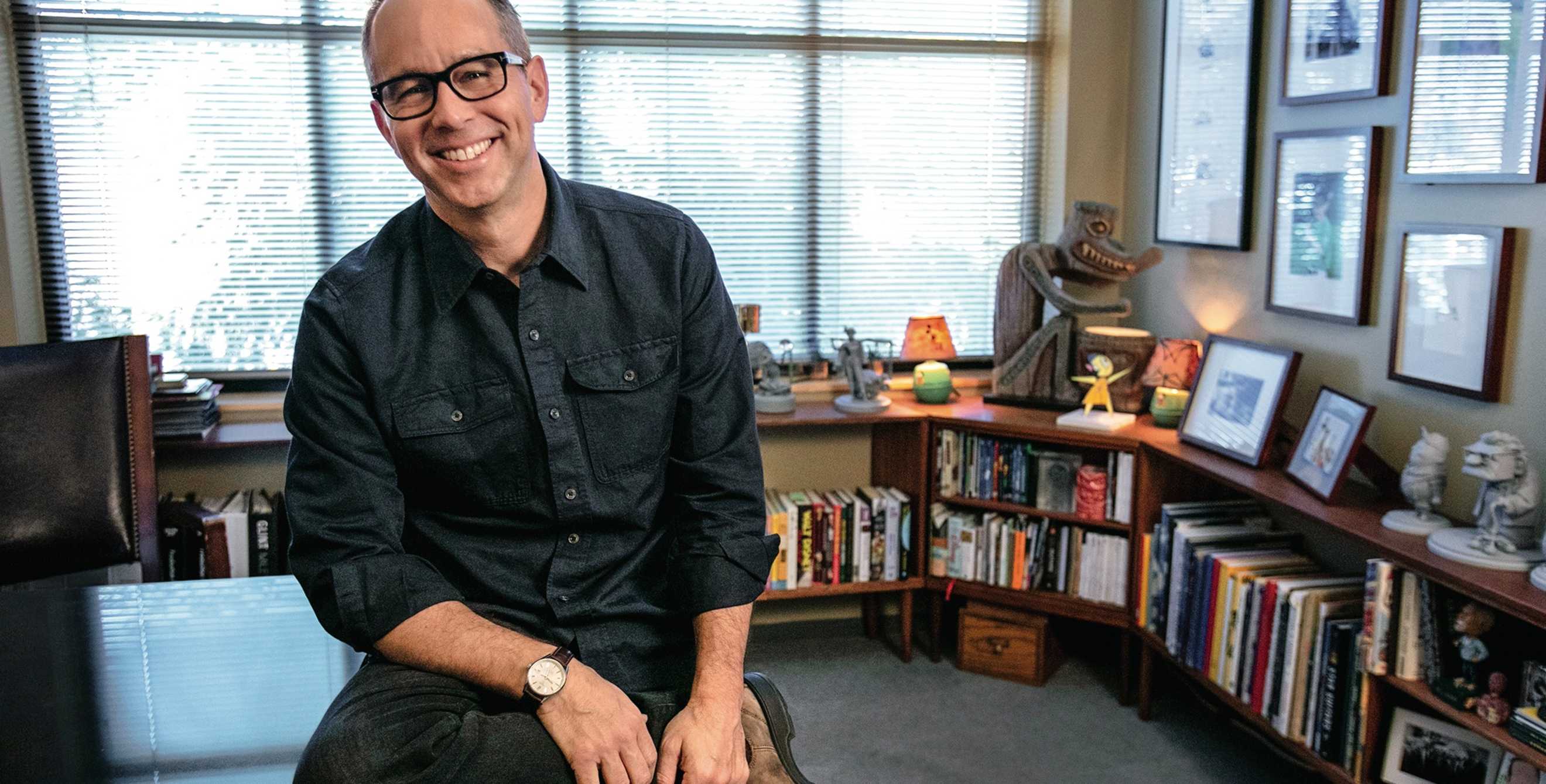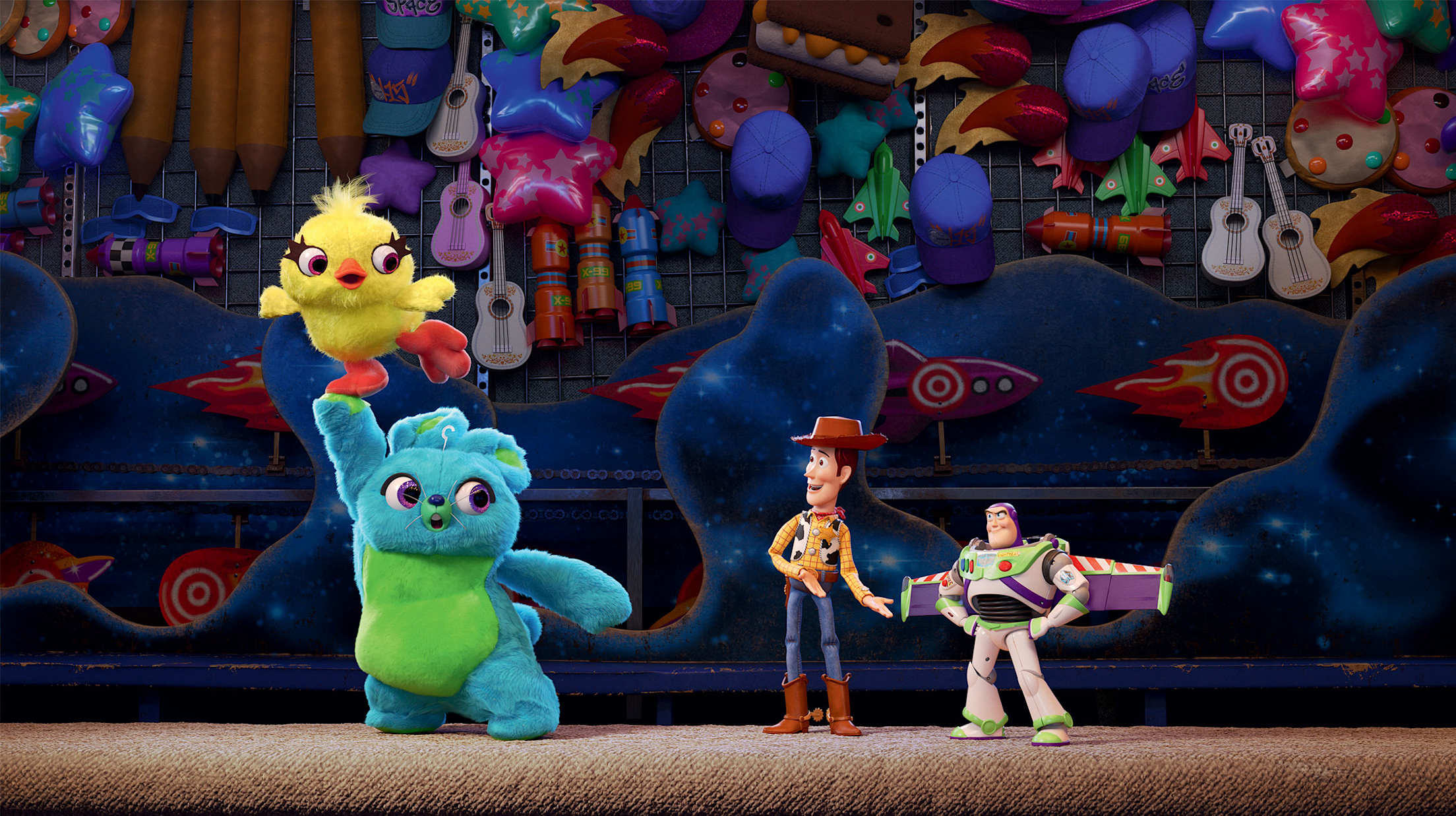
Q&A with Pixar Filmmaker Jonas Rivera
The Oscar-winning Pixar filmmaker worked his way to the top.

Scoring an internship at Pixar 24 years ago was a dream come true for AAA Member Jonas Rivera, who grew up in the San Francisco Bay Area on a steady diet of Disney and Star Wars. Today, he's an Oscar-winning film producer (Inside Out, Up) preparing for the June 21 release of Toy Story 4.
Q. How did you turn your childhood passion into a career?
A. Pixar is a place that rewards passion, and I don't mean that to sound trite. Everyone loves Disneyland, but the difference for me may have been that I started to make things: I made my own little films, wrote music, put myself out there. You have to back up what you love by doing it.
Q. You were an intern, then an office assistant. Any tips for people who want to work their way up?
A. Come at it with an attitude of "How can I help?" as opposed to "How can I get the experience I need?" The people who just jump in, ready for dirty, hands-on work, get rewarded.
Q. What advice do you give creatives?
A. Whatever you do—writing, music, or filmmaking— you have to make it personal. Inside Out is the thing I'm most proud of, not because it did well, made money, and won awards, but because it's a true reflection of the group that made it.
Q. Why are animated films important?
A. I don't think of animated films as being animated. There's a level of caricature to them, but underneath, there's as much sophistication as any film. Movies are expressions of who we are and the time we're in—made one frame at a time by hundreds of animators. It's a miracle that it even works, but there's nothing more rewarding.
Q. You make movies for kids. What was your own childhood like?
A. I was a total child of the ’70s. Star Wars imprinted me, changed me. So did my first trip to Disneyland. It shaped my childhood. When we were making Inside Out, we did a lot of research about memory and about how core memories work; definitely, if that film were about me, the key core memory would have been my first time walking into Disneyland. I also grew up loving sports and going to A’s games. And my mom would always show me old movies and expose me to music and the arts. All that stuff in a blender. I still love all that stuff, still talk about all the stuff I talked about when I was 8. I think a lot of us at Pixar do.
Also—and I’m not just saying this—but growing up, my parents always had the AAA magazine out. I vividly remember flipping through it as a kid, and my family would plan all the trips we wanted to take out of it.
Q. What has been your favorite thing about working on Toy Story 4?
A. There’s a tremendous sense of pride in Toy Story at Pixar. These characters are like our Mickey Mouse. I’ll never forget, as long as I live, being an intern on the first Toy Story and watching a screening of the Army Man scene, not even understanding what I was seeing. So winding up as a Toy Story producer feels like a tremendous honor. Even though I’ve been here so long, when I told my mom that I was doing this, she said, “Wow, they’re letting you?”—but I understand what she meant. I feel the pressure but also the pride of it. Standing there in front of Tom Hanks, seeing Woody walk across the room, I got emotional. Seeing it animated for the first time, before the audience does, feels big and important. We carry it as something precious.

Q. While working on Toy Story 4, did you and Tom Hanks talk about the fact that you’re both from the East Bay?
A. Oh, totally. We both went to Chabot College. We talked about the A’s and the Raiders and Merritt Bakery. We dug pretty deep. And we’re both heartbroken that the Raiders are leaving.
Q. After Chabot College, you went to San Francisco State, then returned as the commencement speaker. What does San Francisco State mean to you?
A. Being the commencement speaker was such an honor. As I was going through school there, I took film classes and knew I loved movies, but I didn’t quite know how to make a career out of it. On my mom’s birthday 24 years ago, I started my internship at Pixar, working on Toy Story. After my last day of classes at San Francisco State, I went straight to the office to start working full time at Pixar. I was so excited to have a job that I didn’t even go to my graduation ceremony; Hillary Clinton was the speaker that year, and my parents weren’t thrilled that I had skipped my graduation. But the studio exploded once Toy Story was complete, and San Francisco State was kind to invite me back to speak. It was a great relief to finally be able to be at a graduation ceremony there.
Q. What exactly does a Pixar producer do?
A. It’s like being a CEO of a company within a company. The producer is the head point person in charge of operations for the whole movie. I’m the director’s right-hand partner. The director thinks it up, and the producer figures out how to pull it out of the director’s head. That involves everything from casting, figuring out how many animators we need, partnering with marketing and publicity, and dealing with all of the under-the-hood technology. I pace and track all the seasons of production. If you think of the movie as a big map of a national park, the producer is the little arrow that tells you where you are.
Q. How do Pixar’s leaders nurture such a culture of creativity?
A. The executive team makes it a huge priority. In fact, we’d be lying if we said that maintaining a creative culture is not our first priority. It goes back to Steve Jobs and is also rooted in Lucasfilm. If you think about [George] Lucas and [Francis Ford] Coppola as they were building their studios up north, the theory is that they wanted to be out of the mainstream Hollywood fray and harness that NorCal vibe. That counterculture, and Steve’s motto, “Think different,” that’s Pixar’s DNA. Whatever everyone else is doing, we’re going to do the opposite. Everything here was forged in that, and everyone here brings a little of that, which is why it’s such a creative culture.
Q. It also seems that having a sense of humor is vital at Pixar. Is that true?
A. I don’t know if that’s true. It’s not part of the job description, and you don’t get reviewed about it. But we do make animated films that we hope families around the world enjoy. It’s effortlessly fun. And I do work with some of the funniest people in the world. We come in to work with a skip in our step, and that seeps into the stories and films. We all realize, I think, how lucky we are that this is what we do. I have a friend who is a police officer in East Oakland, and when I have a hard day, I call him for perspective.
Q. How does your Mexican heritage inform your work at Pixar?
A. My Mexican heritage means a lot to me, and I take that heritage very seriously. It comes from my dad’s side of the family, and family to me is everything. I remember growing up with my grandparents speaking Spanish to us, and I learned so much from them. In fact, Up is dedicated to my Papá—he’s like Carl, kind and hardworking. I learned my work ethic from him. I have to add that I didn’t work on Coco, but I was proud that the family’s last name in that movie is Rivera.
Join AAA for free towing, discounts on tickets and restaurants, ID theft monitoring, and much more for $64.99 a year (and up).